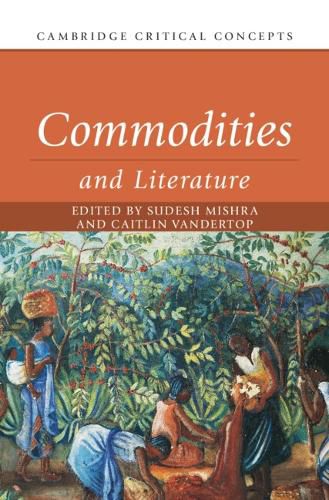Readings Newsletter
Become a Readings Member to make your shopping experience even easier.
Sign in or sign up for free!
You’re not far away from qualifying for FREE standard shipping within Australia
You’ve qualified for FREE standard shipping within Australia
The cart is loading…






Global commodities, from tea and sugar to coal and oil, have had an enduring presence in literary texts. Commodity cultures have also shaped literary ones, from the early influence of the literary coffeehouse to the serial novels facilitated by print's own emergence as a mass commodity. This book offers an accessible overview of the many intersections between literature and commodities. Tracing the stories of goods as diverse as coffee, rum, opium, guano, oil and lithium, as they appear across a range of texts, periods, areas, and genres, the chapters bring together existing scholarship on literature and commodity culture with new perspectives from world-literary, postcolonial and Indigenous studies, Marxist and feminist criticism, the environmental and energy humanities, and book history. How, this volume asks, have commodities shaped literary forms and modes of reading? And how has literature engaged with the world-making trajectories and transformations of commodities?
$9.00 standard shipping within Australia
FREE standard shipping within Australia for orders over $100.00
Express & International shipping calculated at checkout
Global commodities, from tea and sugar to coal and oil, have had an enduring presence in literary texts. Commodity cultures have also shaped literary ones, from the early influence of the literary coffeehouse to the serial novels facilitated by print's own emergence as a mass commodity. This book offers an accessible overview of the many intersections between literature and commodities. Tracing the stories of goods as diverse as coffee, rum, opium, guano, oil and lithium, as they appear across a range of texts, periods, areas, and genres, the chapters bring together existing scholarship on literature and commodity culture with new perspectives from world-literary, postcolonial and Indigenous studies, Marxist and feminist criticism, the environmental and energy humanities, and book history. How, this volume asks, have commodities shaped literary forms and modes of reading? And how has literature engaged with the world-making trajectories and transformations of commodities?